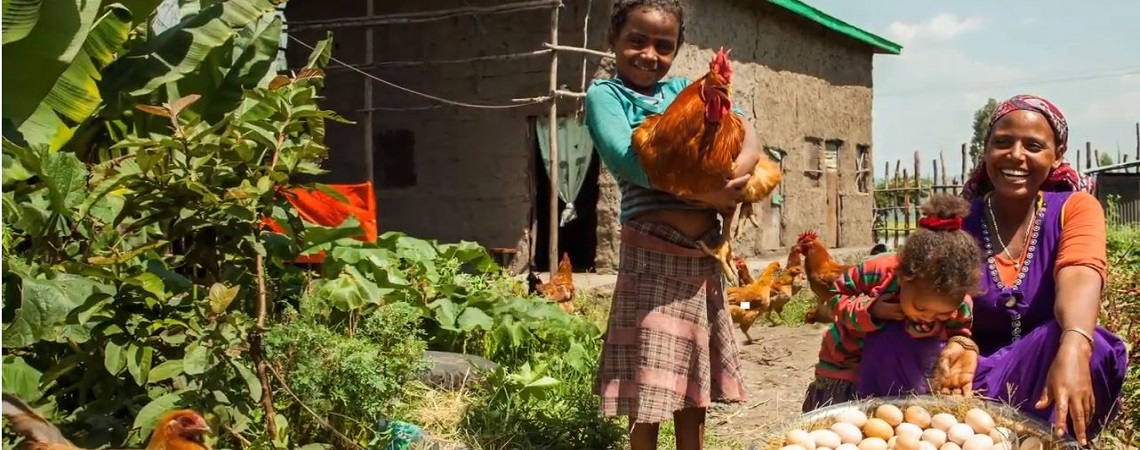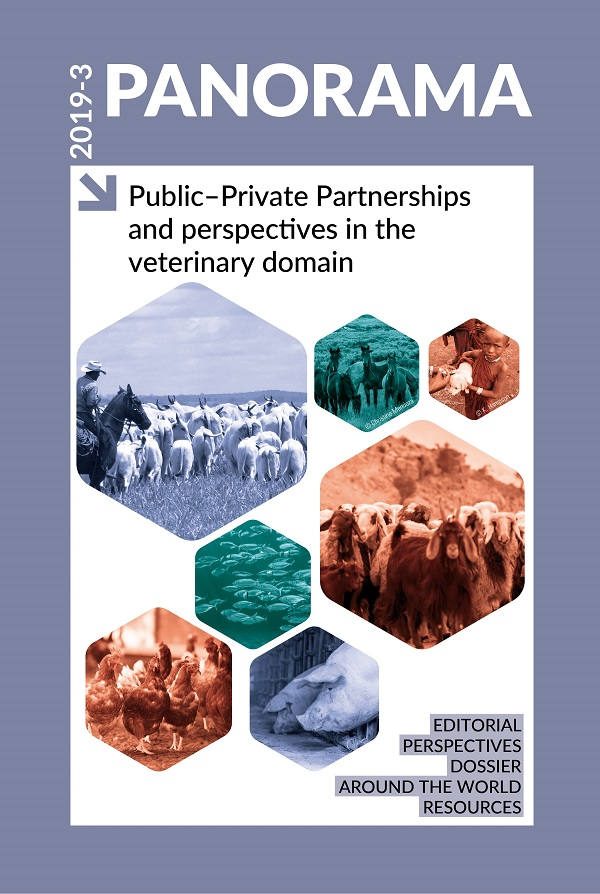Dossier Posted on 2020-01-06 14:56:00
Strengthening animal health services through public–private partnerships
A sustainable, resource-smart, development approach
Keywords
Authors
A. Bisson(1)*, C. Jost(2) & A. Kutnick(3)
(1) Bureau for Food Security, United States Agency for International Development (USAID).
(2) Office of US Foreign Disaster Assistance, Bureau for Democracy, Conflict, and Humanitarian Assistance, United States Agency for International Development (USAID).
(3) Private Sector Engagement Division, Bureau for Food Security, United States Agency for International Development (USAID).
* Corresponding author: abisson@usaid.gov
The designations and denominations employed and the presentation of the material in this article do not imply the expression of any opinion whatsoever on the part of the OIE concerning the legal status of any country, territory, city or area or of its authorities, or concerning the delimitation of its frontiers and boundaries.
The views expressed in this article are solely the responsibility of the author(s). The mention of specific companies or products of manufacturers, whether or not these have been patented, does not imply that these have been endorsed or recommended by the OIE in preference to others of a similar nature that are not mentioned.
Substantial livestock-sector growth in LMICs drives the demand for animal health services, placing public services under pressure and creating opportunities for the private sector.
Those involved in both the public and private animal health sectors are looking for mechanisms to foster collaboration and partnership, and modify policy and other aspects of the enabling environment to improve the efficiency and efficacy of service delivery.
The burden of livestock disease has severe negative impacts on the livelihoods, health and nutrition of millions of poor households. In many LMICs it is the delivery of effective disease prevention and control inputs, not the inputs themselves, that is proving most elusive. Challenges include limited public-sector resources, large livestock populations spread over vast territories, rapidly expanding commercial production systems, and sub-optimal policy frameworks. Limited use is made of PPPs in LMICs, in contrast to their widespread application in higher-income countries.
Public–private partnerships have proven highly effective for the delivery of animal health services but remain underused in most low- and middle-income countries
USAID pursues an enterprise-driven development strategy, led by the private sector, while also recognising the vital role played by the public sector in facilitating sustainable, equitable growth. USAID’s Private Sector Engagement Policy [2] asks these guiding questions:
- is a market-based approach viable?
- what motivations does the private sector have?
- what is holding the private sector back?
USAID supports animal health PPPs by facilitating collaboration among key stakeholders, piloting approaches and evaluating outcomes, and helping to shape policy and service delivery systems.
PPP examples include:
- strengthened service delivery models (by sub-contracting private animal health providers to deliver public goods [sanitary mandate] and integrating veterinary para-professionals [VPPs] into extensive livestock production systems [3])
- improved vaccine development and delivery (including ‘payment for results’ approaches [4])
- animal health support for smallholder poultry expansion in Ethiopia [5].
The OIE PPP Handbook represents a useful capacity-development tool, assisting stakeholders in identifying and selecting partnership options. It is based on experience and best practices, and aims to accelerate learning and provide a suite of options for decision-makers. It constitutes a significant resource for strengthening animal health service capacity.
http://dx.doi.org/10.20506/bull.2019.3.3049

References
- World Organisation for Animal Health (OIE) (2019). – The OIE PPP handbook: guidelines for public–private partnerships in the veterinary domain.
- United States Agency for International Development (USAID) (2019). – Private sector engagement policy.
- Abebe D. (2016). – Veterinary Services in Karamoja, Uganda: a review. Karamoja Resilience Support Unit, USAID/Uganda, Kampala.
- AgResults.
- Ethiochicken.










